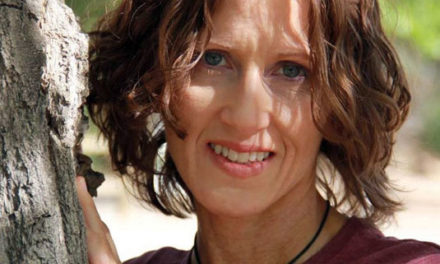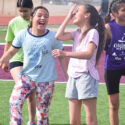First person
“We must teach our children to smell the earth, to taste the rain, to touch the wind, to see things grow, to hear the sun rise and the night fall — to care.” John Cleal

Frank Mazza
Some of the fondest memories of my youth are the hours my younger brother and I spent exploring the streams, fields, and forests near our home. We were constantly on the lookout for frogs, snakes, and rabbits while enjoying the sun, rain, snow, wind or sometimes several weather events at the same time.
I still vividly recall the experience, decades ago, as I watched when a crow arose from the tall grass in the field with a writhing snake in its bill. Another time, I was on a winter walk crossing the same field and came upon the tracks of a mouse and the tracks abruptly ended with the imprint of owl wings in the fresh snow. Dragonflies racing along the bank of a pond and butterflies floating in the wind awed me.
As a youngster who was getting wet, muddy, and sun- or wind-burned all the time I was outdoors, I was also getting exercise, using my imagination, becoming more curious about plants and animals, witnessing the interplay of nature’s beauty and cruelty, and developing a lifelong appreciation, interest, and respect for the world around me. The events I observed as a child and their importance to me in my formative years are equally available and important to the youth of today.
Currently, however, children are spending half as much time outdoors as they did 20 years ago. The Kaiser Family Foundation reports that children aged 8–12 now spend, on average, 5 1/2 hours a day in front of a screen. My concern is that screen time and time spent outdoors in nature is out of balance.
At our local Whitfield Wildlife Conservation Area — owned and managed by the Valencia Soil and Water Conservation District — I recently had a wonderful conversation with two grandparents who were there for a walk with their four young grandchildren. Their grandfather mentioned one of his granddaughters had recently been to Whitfield for a field trip with her class. The VSWCD’s environmental education program includes a classroom component in local elementary schools, taught by the district’s environmental education manager, followed by a guided field trip to VSWCD’s Whitfield Conservation Area. More than 1,000 elementary school students participate in the program each school year.
What I found so exciting about my conversation with these grandparents is they were affirming what their granddaughter had experienced, giving it value and importance, by them all being outdoors at a conservation area, and by also including their younger grandchildren in a new outdoor learning adventure.
Outdoor experiences are not limited to conservation areas, wildlife refuges or parks. The goal is for children to discover the natural world, even in their backyards or in community gardens. Children may need encouragement from a parent, teacher or other adult who can accompany them and give them ideas on how to engage with the world directly — not just virtually.
A few suggestions include going on a scavenger hunt, asking children to find something that is a certain color, has no legs, four legs or six legs, is dry, wet, shiny or pretty; crawls or smells good or bad, etc. Kids can examine several items carefully and draw or color what they see. They can create a journal describing what they see, hear, smell and touch when they are outside. They can observe a tree, plant or terrain through the seasons and watch how it changes.
Families can photograph their children at the same location over a year to record the changes not only in the setting, but in their children, too. The possibilities are endless!
Just a reminder that outdoor areas managed by local, state and federal agencies have a leave-no-trace approach to the land, requiring us to not collect items or leave trash behind, so that others can enjoy the wonders of the natural world.
As the writer and photographer Brandi Rondinelli has written, “Just like a bee needs a flower, a child needs nature.” We all do, for that matter.
(Frank Mazza is the volunteer coordinator for the Friends of Whitfield.)
















